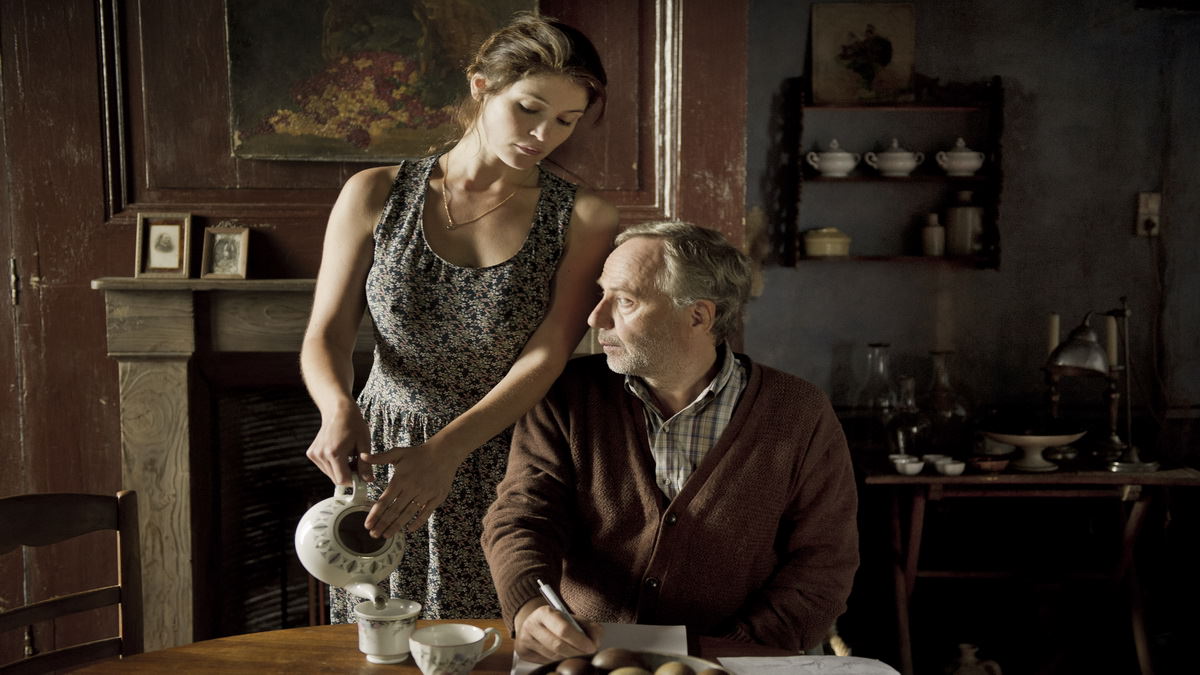AN ACCIDENTAL STUDIO (2019) de Bill Jones, Kim Leggatt y Ben Timlett

“La historia de cómo un Beatle creó una de las productoras británicas más importantes de todos los tiempos”
Cuando nadie quería apostar por el nuevo trabajo cinematográfico de los Monty Python, “La vida de Brian” (Terry Jones, 1980), una luz mesiánica apareció en escena. Eran tiempos difíciles para los Python, su filme había sido considerado blasfemo y peligroso por EMI Films, los que en un principio habían puesto la pasta. La película tenía sus días contados pero George Harrison, uno de los Beatles hizo acto de presencia. El filme estaba medio terminado, solo necesitaban una inversión de tres millones de libras para la posproducción y la tan importante promoción.
Harrison era fan del grupo y cuando se enteró de que necesitaban ayuda, no dudó en hipotecar su casa para salvar el proyecto. El ex Beatle buscaba calidad, y los Python se la garantizaban. Por desgracia cuando se rodó el documental George Harrison ya estaba muerto, pero de forma muy inteligente recuperaron una entrevista donde hablaba abiertamente de lo que fue su productora Handmade Films. Sus directores, Kim Leggatt, Bill Jones y Ben Timlett, saben intercalar sus declaraciones con la del resto de testimonios de un modo que parece que pertenecen al documental.
Si no estás muy familiarizado con esta época del cine británico, quizás desconozcas algunos de los filme que produjeron, algunos considerados como verdaderas obras maestras como “El largo Viernes Santo” (John McKenzie, 1980), o la desconcertante “Los héroes del tiempo” (Terry Gilliam, 1981). Uno de los puntos fuertes del documental de Sundance Tv son las entrevistas. Bob Hoskins, Maggie Smith o Terry Guillian son lo más destacable. Por supuesto en el documental no olvidan el periodo en el que quisieron ser Hollywood e hicieron su peor filme, “Shanghai Surprise” (Jim Goddard, 1986), con una pareja, que también lo era en el mundo real, archiconocida como Madonna y Sean Penn.
El documental es una buena oportunidad para descubrir a una de las productoras independientes más interesante que ha dado Europa.
Nuestra calificación: (3/5)
“Insert descriptive tagline that mentions Handmade Films, a Beatle and possibly a Python or two…”
When nobody wanted to bet on the new cinematographic work of the Monty Python, «The Life of Brian» (Terry Jones, 1980), a messianic light appeared on the scene. They were difficult times for the Python, their film had been considered blasphemous and dangerous by EMI Films, who had initially put the paste. The film had its days numbered but George Harrison, one of the Beatles made an appearance. The film was half finished, they only needed an investment of three million pounds for post-production and such an important promotion.
Harrison was a fan of the group and when he found out they needed help, he didn’t hesitate to mortgage his house to save the project. The former Beatle was looking for quality, and the Python guaranteed it. Unfortunately, when the documentary was filmed, George Harrison was already dead, but they intelligently retrieved an interview where he talked openly about what was his production company Handmade Films. Its directors, Kim Leggatt, Bill Jones and Ben Timlett, know how to intersperse their statements with that of the other testimonies in a way that seems to belong to the documentary.
If you are not very familiar with this era of British cinema, you may not know some of the films they produced, some considered as true masterpieces such as «The Long Good Friday» (John McKenzie, 1980), or the disconcerting «The Heroes of Time» (Terry Gilliam, 1981). One of the strengths of the Sundance TV documentary are the interviews. Bob Hoskins, Maggie Smith or Terry Guillian are the highlights. Of course in the documentary they do not forget the period in which they wanted to be Hollywood and made their worst film, “Shanghai Surprise” (Jim Goddard, 1986), with a couple, who was also in the real world, well-known as Madonna and Sean Penn
The documentary is a good opportunity to discover one of the most interesting independent producers that Europe has given.
Traducido por: Eduardo Llorente.
Our rating: (3/5)





